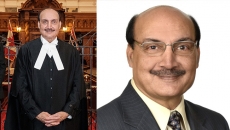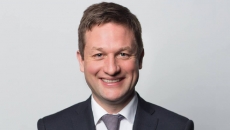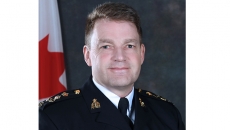People have been assuming that you were going to become Premier for some time now. Did you always want this job? Why go for this job upon former Premier John Horgan’s retirement and what has motivated you to take it up? What challenges do you continue to foresee in your new role as Premier?
My dad was a lawyer. I followed my father into law because I wanted to do good things for people who were being treated unfairly. I eventually came to realize that instead of fighting bad government through the law, it would help more people to build a government that did good things for people. My colleagues encouraged me to step up to become premier. Being premier makes a lot of demands on family life. With the support of my wife, Cailey, we decided we could find a balance between all-important home life and serve British Columbians. So far, so good. All of which, to answer your question, is, no, I did not always want this job. But I am glad to be doing it now. As for challenges, politics is about finding the right balance. Our government is working hard to create affordable housing, to protect healthcare, to foster safer streets by addressing the root causes of crime and poverty.
How will your leadership style differ from former premier John Horgan’s?
Premier Horgan led us through a pandemic unlike any other in our lifetime. He was a rare figure in public life who left office more popular than when he started. He was a mentor to me, almost like a coach. I’m proud of the work we did together to get big money out of politics, crack down on money laundering, and out ICBC on track to deliver savings for drivers. While our leadership style differs in some ways, we both believe in collaboration as the best way to find solutions.
You were in the role of Housing Minister prior to your appointment as Premier. What will be your strategy in handling the housing crisis and making sure that the dream of home ownership is not being chased away from young people? How will you tackle homelessness?
We’re tackling the housing crisis on both fronts: fighting speculation and building record numbers of homes – including accelerating housing construction even further. Recently, we introduced legislation to get more homes built and changed unfair strata rental restrictions, which makes it possible for homes that are vacant to be rented. It will also remove discriminatory age and rental restrictions in stratas that hurt young families. This is all part of the making the largest investment in housing supply in B.C.’s history – $7 billion over 10 years – and working with partners to deliver 114,000 affordable homes. More than 36,000 homes are already completed or underway throughout the province, with much more to come.
The words “Dumpster Fire” have been used by you for ICBC. There was also a delay in British Columbians receiving their ICBC rebate cheques. So will you be scrapping ICBC and bringing in a new model?
I’m confident the generational reforms to ICBC are paying off with affordable, stable rates and good benefits for customers, and a path to financial stability for the corporation – there are no plans to change the model. Under ICBC’s Enhanced Care insurance model, insurance rates in British Columbia have gone from some of the most expensive in Canada to being among the most affordable, according to a new report conducted by Ernst & Young. When B.C. transitioned to Enhanced Care, the majority of ICBC customers who renewed their full coverage personal auto insurance saved, on average, $490 or about 28 per cent compared to premiums in the old model.
A lot of people are not happy about how the leadership race was handled with the challenger Anjali Appadurai being ousted out of the party. How do you hope to restore the faith and trust of the youth for the BCNDP?
I care deeply about climate change and work every day to further our CleanBC plan to dramatically lower emissions this decade. We have the most ambitious climate targets on the continent, and we are collaborating to build a cleaner economy. As father to two children, I am aware of the urgent need to address climate change today. My leadership represents a generational change. We are doing exciting things to build a better future for all British Columbians. We are building new schools, homes, hospitals, and post-secondary institutions. I’m excited about building a clean, sustainable economy as the world moves away from carbon energy.
Anjali Appadurai is a well-known climate activist, is there a chance that you will use her expertise as part of your cabinet?
As you know, the practice is to build a cabinet from members elected to the Legislature. The voters of B.C. sent to Victoria an NDP caucus which better represents the population than any previous caucus in the history of the province. We have a superb cabinet of British Columbians of varied backgrounds and lived experiences.
As Premier, you have introduced a range of new measures aimed at boosting public safety in communities across B.C. The Safer Communities Action Plan, is a key piece with public safety. Liberal MLA, Elenore Sturko, for Surrey South, questioned why the plan wasn’t introduced by you during your five years as Attorney General. According to you, what has been the reason for the delay?
Since we formed government, we’ve taken on huge challenges to combat crime and public safety. From day one, I made tackling money laundering a top priority, as it fuels organized crime and the toxic drug crisis. The Safer Communities Action Plan is our next step in bringing together enforcement, community services, health experts, and others to tackle the issue of violent repeat offending together.
You have proposed legislation to bring in “unexplained wealth orders”, which you say will dissuade those attracted to gang lifestyles in early 2023. The orders would seize the “houses, cars, and luxury goods” of organized criminals— something recommended by the Cullen Commission on money laundering earlier this year. What costs do you estimate for the new measures?
Some young people are attracted to gang life by flashy images of fast cars, fancy homes, and luxury goods. Unexplained wealth orders are a tool to send a clear message to organized crime. We will be seizing the assets and going after the proceeds that attract young people to organized crime and gag life. More details will be available when we introduce legislation this spring.
You are wanting to open 10 new Indigenous justice centres across the province, and you want to offer more access to culturally appropriate legal services for Indigenous people. Do we know where these centres will open as the Province has only mentioned metropolitan areas and the timeline on when the first five centres will open this year?
In partnership with the BC First Nations Justice Council, we’re implementing the BC First Nations Justice Strategy to reduce the over incarceration of Indigenous Peoples and revitalize Indigenous legal practices and traditions. There are currently three Indigenous Justice Centres open in Merritt, Prince George and Prince Rupert, as well as the virtual Justice Centre, that provides free, culturally relevant legal services. We will be announcing the location of the new Indigenous Justice Centre in the coming weeks. Six more are set to open in the next fiscal year. In total, 15 Indigenous Justice Centres will be operational within two years.
What’s a message you would like to share with the South Asian community?
South Asian communities make many incredible contributions to British Columbia. Whether as local business owners, community leaders, or volunteers, you make our province a better place. I’m also fortunate to have several outstanding South Asian leaders on my team. In know people in your communities are facing many challenges right now – from the high cost of living to the long lasting effects of the pandemic. If COVID-19 taught us one thing, it’s that going it alone doesn’t work. The future of B.C. is bright. Together, we can build a better, stronger, and more inclusive province. One where everyone belongs and no one gets left behind.






